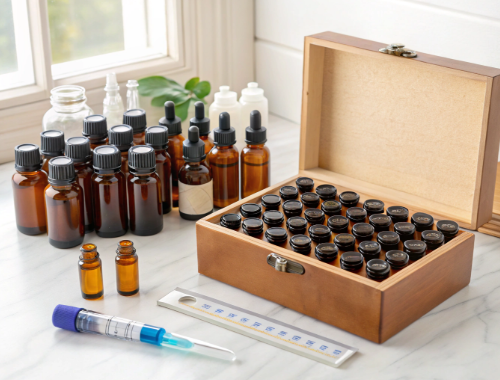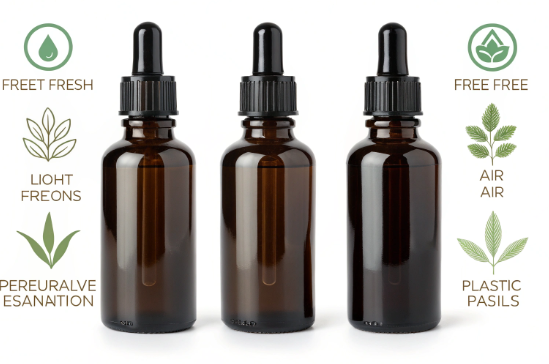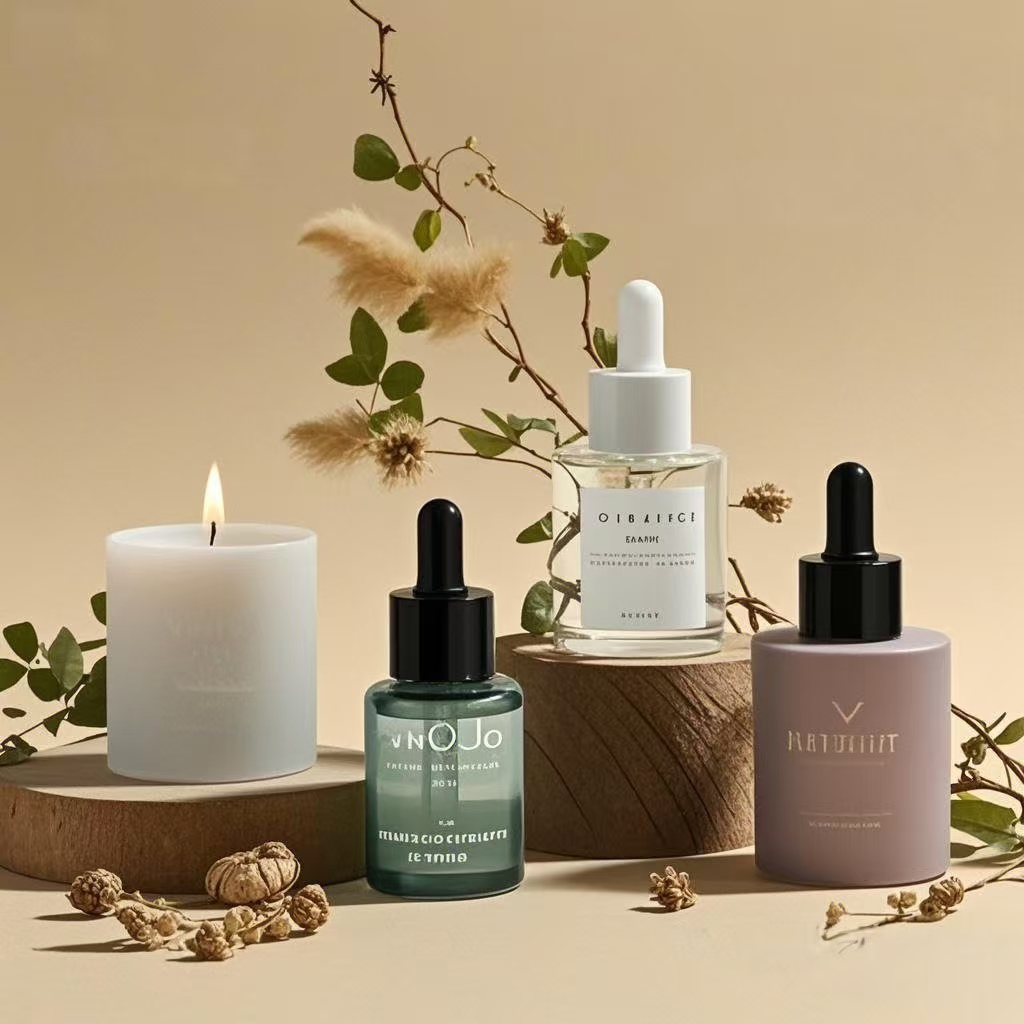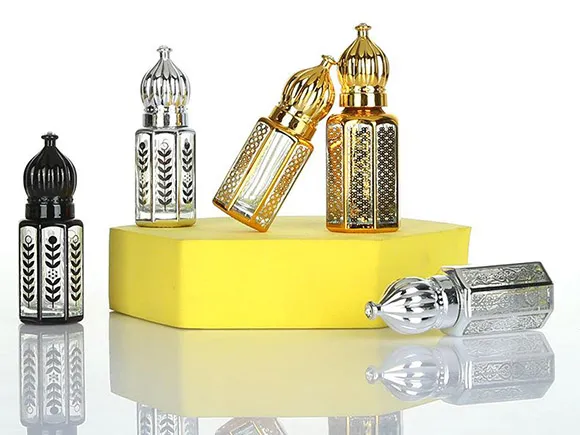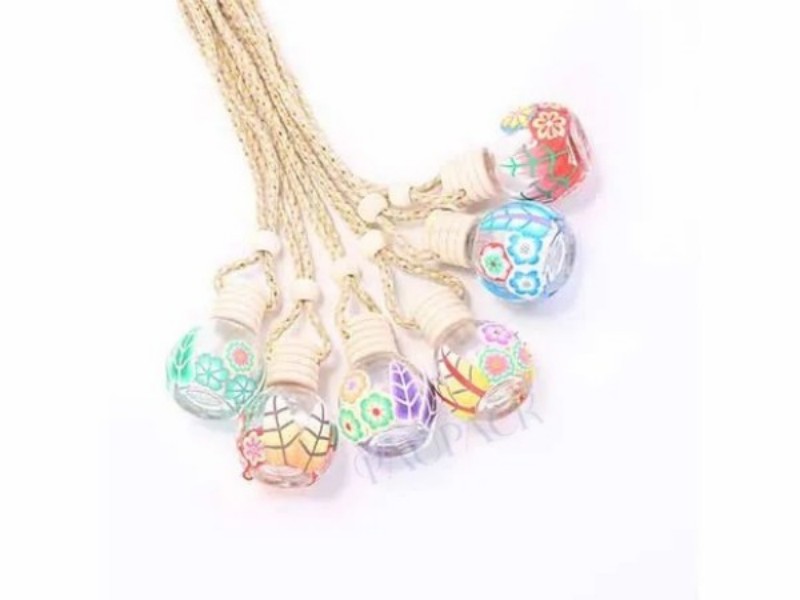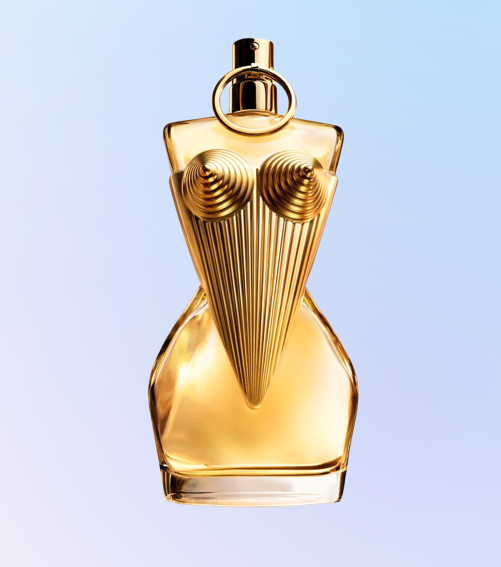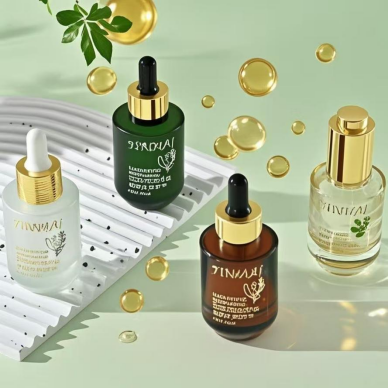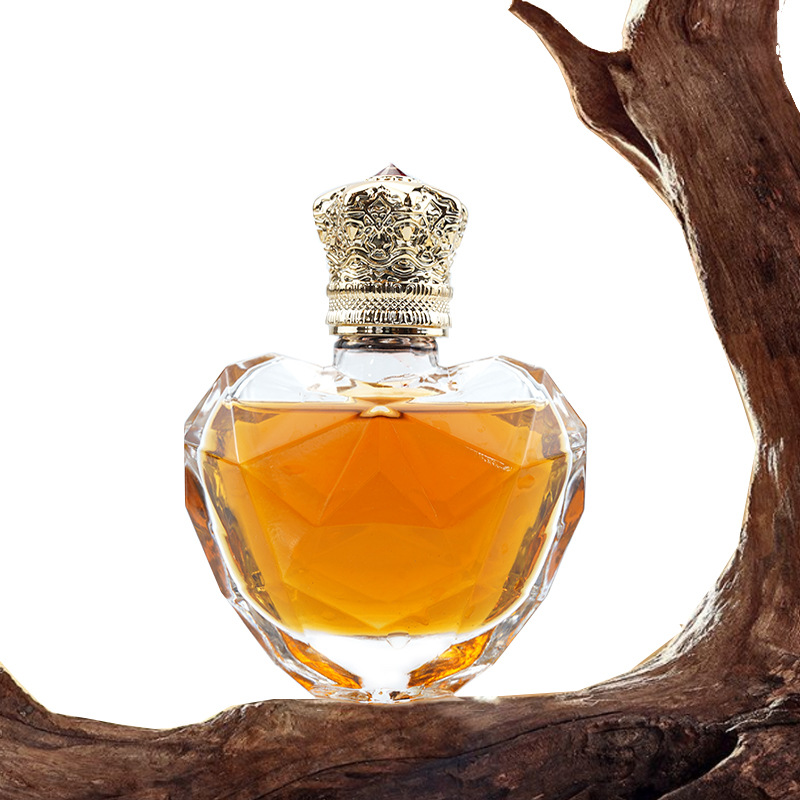Essential oils may be small in size, but they have chemical functions. The wrong container will not only damage the oil, but also damage the safety and performance of the product.
Yes, essential oils need to be stored in glass bottles (avoidable dark colors) to prevent chemical reactions, oxidation and degradation caused by leaching of light, air and plastic.
At Paupack, we specialize in glass packaging designed specifically for essential oils, providing protective formulas and brands of amber, cobalt and matte black bottles.
Can you put essential oil in a plastic bottle?
Short answer: Temporarily under certain conditions only - only under certain conditions.
No, pure essential oils cannot usually be stored in plastic bottles because their compounds can damage the plastic, causing contamination and structural damage.
Why plastic doesn't work
| Problem | Result |
|---|---|
| EO compounds are corrosive | Plastic can distort, leak or degrade |
| Leaking Risk | Plastic chemicals may enter oil |
| Loss of effectiveness | Oil oxidizes faster in plastic |
| Not anti-UV rays | Light exposure to further degrade oil |
Some essential oils (especially citrus-based lemon or orange) are even more aggressive on plastic. That's why Paupack only uses glass for packaging concentrates to ensure safety and shelf life.
Can I inject oil into plastic bottles?
DIY infusions are popular, but storage is still important.
If you use essential oils, you should not inject oils into plastic bottles because their active compounds will degrade the plastic and destroy the infusion.
Risk of injection of plastic
-
Oxidation: Poor sealing allows air to enter
-
Pollution: Plastics distribute toxins
-
Aromatic distortion: odor integrity is compromised
If you are injecting a carrier oil (such as jojoba oil + lavender EO), be sure to use a sterilized amber glass bottle. Paupack is available in 10ml to 100ml size packaging, perfect for personal mixtures and professional retail products.
Can oil be placed in plastic bottles?
It depends on the type of oil, but glass is always a better choice for essential oils.
Carrier oils like almonds or jojoba can be temporarily stored in food grade plastics, but essential oils or mixed with essential oils can only be stored in glass.
Plastic with glass and oil
| Oil type | Is plastic good? | Preferred container |
|---|---|---|
| Essential Oils | ❌No | Amber or cobalt glass |
| Oil carrier | ✅Short term | Pet or HDPE (food grade) |
| Mixed Formula | ⚠️Risk | Glass cover |
At Paupack, we offer glass and certified HDPE packaging for customers who need supplemental formats or large capacity shipping, but recommends glass for all consumer-facing EO products.
Is it better to store oil in plastic or glass?
The material you choose directly affects the life, aroma and safety of the oil.
Storing essential oils in glass instead of plastic is always best because glass is inert, non-reactive and protective against UV and oxygen.
Why glass wins
-
Not reacting with oil compounds
-
Save aroma and chemistry
-
Compatible with droppers, rollers or reduction caps
-
Support advanced brand and retail preparation
At Paupack, our essential oil packaging is made of pharmaceutical grade, UV-resistant glass designed for brand protection and consumer trust. Whether you release a single oil or a complete range of aromatherapy, we can match the bottle.
Conclusion
Glass is not only a packaging preference, but also a performance standard. With Paupack’s premium glass bottles and complete customization options, your essential oils stay pure, effectively and professionally demonstrate every step.




